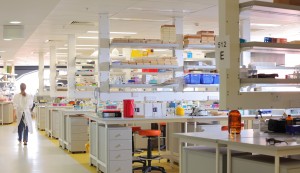Professor Dianne Nicol was invited to participate in an OECD workshop on ‘Gene Editing in an Internation al Context: Scientific, Economic and Social Issues across Sectors‘ held in Ottawa, Canada on the 29th and 30th of September 2016. At the workshop, she presented on innovation pathways and roadblocks in genome editing, using her previous research on innovation in the biopharmaceutical industry to provide salutary lessons. She concluded that what is needed is a cautious approach, fostering innovation by: regulating and governing; propertising and sharing; and communicating and consulting wisely.
al Context: Scientific, Economic and Social Issues across Sectors‘ held in Ottawa, Canada on the 29th and 30th of September 2016. At the workshop, she presented on innovation pathways and roadblocks in genome editing, using her previous research on innovation in the biopharmaceutical industry to provide salutary lessons. She concluded that what is needed is a cautious approach, fostering innovation by: regulating and governing; propertising and sharing; and communicating and consulting wisely.
The workshop covered genome editing accross its many applications. The scientific, economic and social issues were considered in relation to: Agriculture, Aquaculture and Bio-production; Environmental Applications, and; Applications in Human Medicine. She recounted examples of the studies mentioned at the workshop that are capitalising on the power and potential for genome editing and its applications within but also outside health in Australia to the CLG earlier this morning with much excitement.
The CLG is hosting an upcoming workshop on genome editing later this year. Workshops such as the OECD Gene Editing in an International Context are a perfect springboard on which to delve into the more specific issues arising in respect of human applications of CRISPR, and the way forward. Many of these contentious issues are not new; older methods of gene editing have been discussed at length in the past and as far as embryo research is involved, this is also not new. However, the sheer volume of use of CRISPR technology by scientists and industry, the multitude of potential applications, the new promises and the feeling that this technology may actually deliver, brings questions into reality where answers must be provided to ensure safety to the public while supporting innovation. There are also important follow on questions for example in relation to commercialisation which impact upon the usefulness of the technology.
Also in September, Dianne Nicol presented on intellectual property issues in genomics in a number of other forums, including the annual European Policy on Intellectual Property Conference in Oxford, UK and an invitation only workshop ‘The Future of Genomic Medicine Patents in Europe and the US’ in Cambridge, UK. Dianne discussed her empirical, policy and doctrinal research findings over the five or so years at these events.
Save
Save
Save

